
Karlseder Lab
@karlsederlab.bsky.social
Focusing on telomere metabolism, innate immune signaling, cancer initiation, and proliferative boundaries; Salk Institute
Reposted by Karlseder Lab
🧬Register for the GRS on DNA Damage, Mutation & Cancer🧬
Feb 28–Mar 1 2026, Ventura CA
Accepting abstracts for oral presentations! 📍 Apply here 👉 grc.org/dna-damage-mutation-and-cancer-grs-conference/2026 (www.grc.org/dna-damage-m...)
#DNADamage #GRC#GRS #CallForAbstracts
Feb 28–Mar 1 2026, Ventura CA
Accepting abstracts for oral presentations! 📍 Apply here 👉 grc.org/dna-damage-mutation-and-cancer-grs-conference/2026 (www.grc.org/dna-damage-m...)
#DNADamage #GRC#GRS #CallForAbstracts

2026 DNA Damage, Mutation and Cancer (GRS) Seminar GRC
The 2026 Gordon Research Seminar on DNA Damage, Mutation and Cancer (GRS) will be held in Ventura, California. Apply today to reserve your spot.
grc.org
November 5, 2025 at 9:12 PM
🧬Register for the GRS on DNA Damage, Mutation & Cancer🧬
Feb 28–Mar 1 2026, Ventura CA
Accepting abstracts for oral presentations! 📍 Apply here 👉 grc.org/dna-damage-mutation-and-cancer-grs-conference/2026 (www.grc.org/dna-damage-m...)
#DNADamage #GRC#GRS #CallForAbstracts
Feb 28–Mar 1 2026, Ventura CA
Accepting abstracts for oral presentations! 📍 Apply here 👉 grc.org/dna-damage-mutation-and-cancer-grs-conference/2026 (www.grc.org/dna-damage-m...)
#DNADamage #GRC#GRS #CallForAbstracts
Another great read from the lab (this time with @joenassour.bsky.social) on how telomere crisis stands at the crossroads of cancer suppression and evolution 🧬
Out now in CSH Perspectives in Biology (Telomeres & Telomerase) : “Telomere crisis shapes cancer evolution.” cshperspectives.cshlp.org/content/earl...

August 15, 2025 at 3:04 PM
Another great read from the lab (this time with @joenassour.bsky.social) on how telomere crisis stands at the crossroads of cancer suppression and evolution 🧬
Our lab’s latest “hot take” is out in Genes & Development!
We argue for looking beyond senescence to understand how telomeres connect aging, tumor suppression, and inflammation.
Great job @sambloom28.bsky.social!
👉 DOI: 10.1101/gad.353122.125
genesdev.cshlp.org/content/earl...
We argue for looking beyond senescence to understand how telomeres connect aging, tumor suppression, and inflammation.
Great job @sambloom28.bsky.social!
👉 DOI: 10.1101/gad.353122.125
genesdev.cshlp.org/content/earl...
Telomeres at the nexus of aging, tumor suppression, and inflammation: toward an understanding beyond senescence
A biweekly scientific journal publishing high-quality research in molecular biology and genetics, cancer biology, biochemistry, and related fields
genesdev.cshlp.org
August 15, 2025 at 2:55 PM
Our lab’s latest “hot take” is out in Genes & Development!
We argue for looking beyond senescence to understand how telomeres connect aging, tumor suppression, and inflammation.
Great job @sambloom28.bsky.social!
👉 DOI: 10.1101/gad.353122.125
genesdev.cshlp.org/content/earl...
We argue for looking beyond senescence to understand how telomeres connect aging, tumor suppression, and inflammation.
Great job @sambloom28.bsky.social!
👉 DOI: 10.1101/gad.353122.125
genesdev.cshlp.org/content/earl...
Reposted by Karlseder Lab
🧵 1/10 Excited to share our latest study in @naturecomms.bsky.social
"A CPC-shelterin-BTR axis regulates mitotic telomere deprotection" t.co/VypPsLBJCR
"A CPC-shelterin-BTR axis regulates mitotic telomere deprotection" t.co/VypPsLBJCR
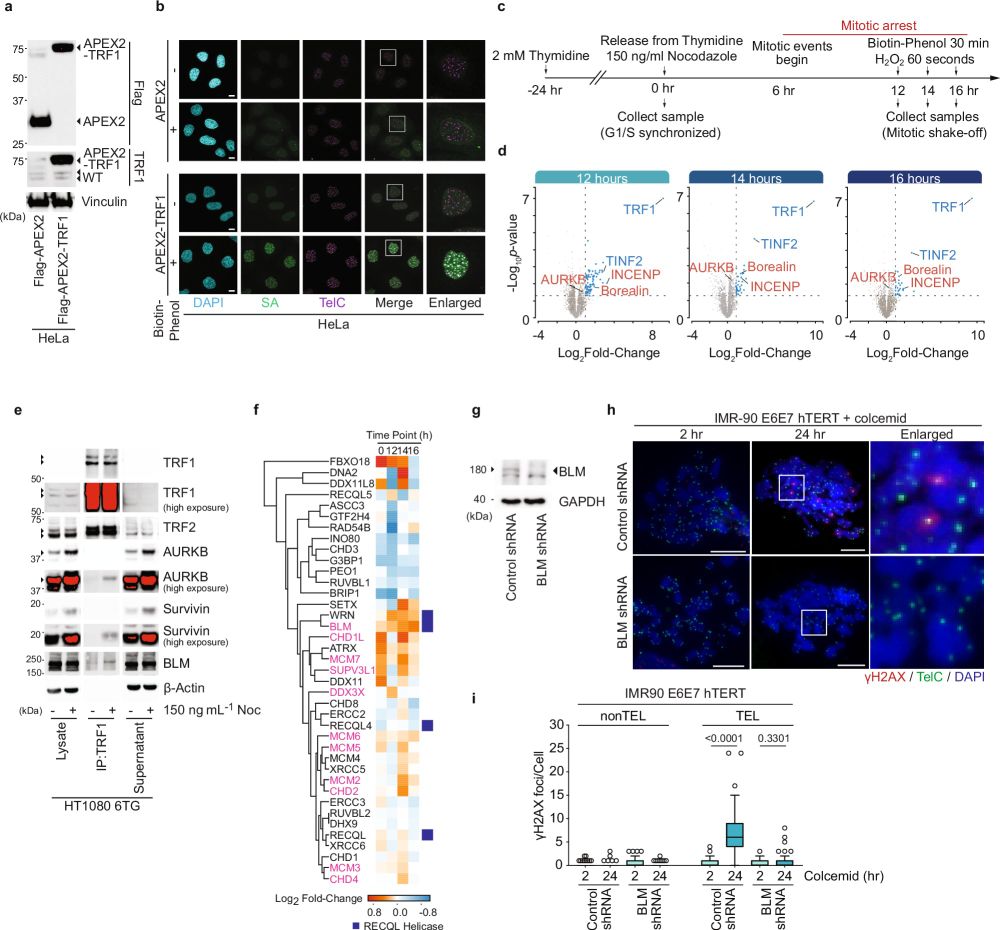
A CPC-shelterin-BTR axis regulates mitotic telomere deprotection
Nature Communications - Here the authors reveal how telomeres signal mitotic stress. A key protein network alters their structure exposing telomere ends to signal mitotic stress, ultimately...
rdcu.be
March 17, 2025 at 12:49 PM
🧵 1/10 Excited to share our latest study in @naturecomms.bsky.social
"A CPC-shelterin-BTR axis regulates mitotic telomere deprotection" t.co/VypPsLBJCR
"A CPC-shelterin-BTR axis regulates mitotic telomere deprotection" t.co/VypPsLBJCR
Reposted by Karlseder Lab
1/Out today in @naturecomms.bsky.social,
“A CPC-shelterin-BTR axis regulates mitotic telomere deprotection”.
Here we identify the mechanism that unwinds telomere-loops (t-loops) during mitotic arrest to activate the DNA damage response and signal mitotic stress.
www.nature.com/articles/s41....
“A CPC-shelterin-BTR axis regulates mitotic telomere deprotection”.
Here we identify the mechanism that unwinds telomere-loops (t-loops) during mitotic arrest to activate the DNA damage response and signal mitotic stress.
www.nature.com/articles/s41....
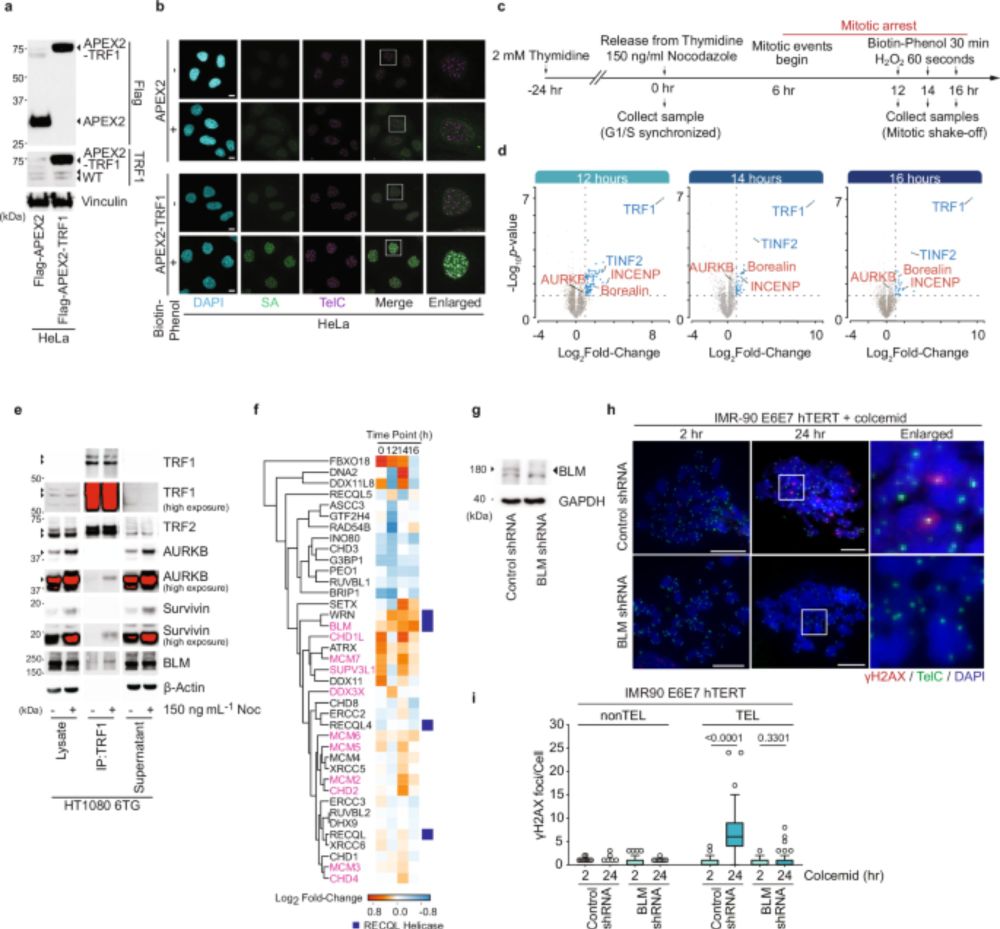
A CPC-shelterin-BTR axis regulates mitotic telomere deprotection - Nature Communications
Here the authors reveal how telomeres signal mitotic stress. A key protein network alters their structure exposing telomere ends to signal mitotic stress, ultimately triggering a controlled DNA damage...
www.nature.com
March 17, 2025 at 10:32 AM
1/Out today in @naturecomms.bsky.social,
“A CPC-shelterin-BTR axis regulates mitotic telomere deprotection”.
Here we identify the mechanism that unwinds telomere-loops (t-loops) during mitotic arrest to activate the DNA damage response and signal mitotic stress.
www.nature.com/articles/s41....
“A CPC-shelterin-BTR axis regulates mitotic telomere deprotection”.
Here we identify the mechanism that unwinds telomere-loops (t-loops) during mitotic arrest to activate the DNA damage response and signal mitotic stress.
www.nature.com/articles/s41....
Great opportunity for those looking for a faculty position!
@CU_BMG at the University of Colorado is seeking a structural biologist specializing in cryo-EM/ET. Join us in Colorado! www.nature.com/naturecareer...

TENURE-TRACK FACULTY - Aurora, Colorado job with Univ of Colo Anschutz Med Campus | 12835415
Open-rank faculty position in structural biology, specifically in the area of cryo-electron microscopy or cryo-electron tomography.
www.nature.com
February 14, 2025 at 3:34 PM
Great opportunity for those looking for a faculty position!
Huge thanks to Hannah Trost, Gabriel Matos Rodriguez, Roger Greenberg, and Hilda Pickett for an amazing Mammalian DNA Repair GRS/GRC in Ventura! Already excited for the next one!
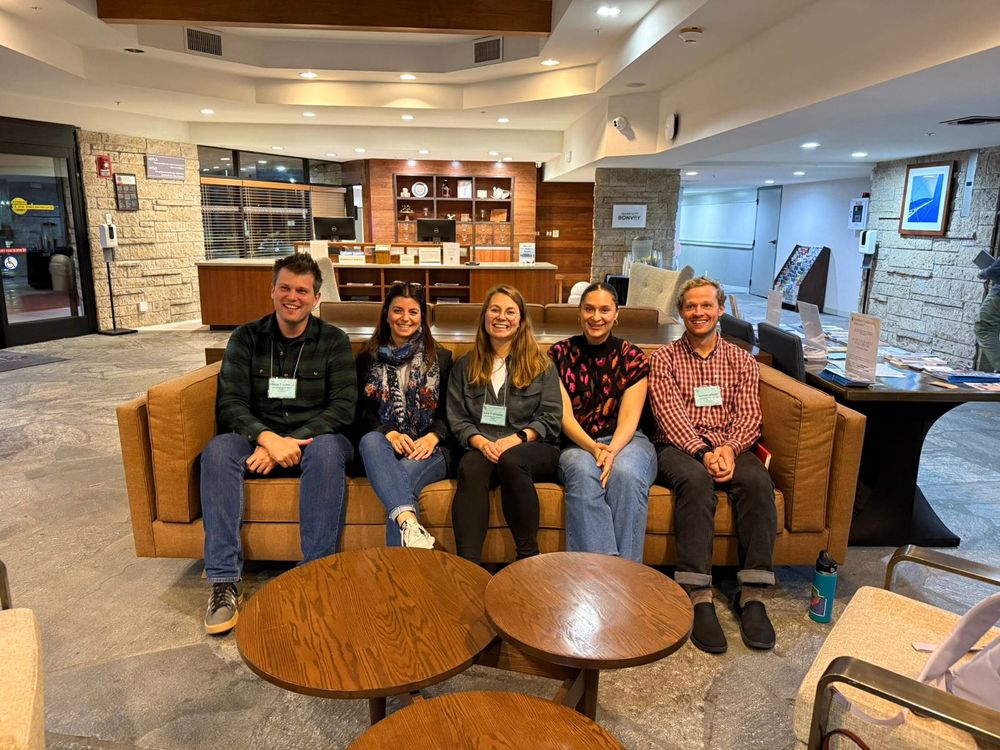
February 7, 2025 at 9:23 PM
Huge thanks to Hannah Trost, Gabriel Matos Rodriguez, Roger Greenberg, and Hilda Pickett for an amazing Mammalian DNA Repair GRS/GRC in Ventura! Already excited for the next one!
Reposted by Karlseder Lab
1/Delighted to announce the newest paper from our lab, “Homologous recombination promotes non-immunogenic mitotic cell death upon DNA damage”, is out today in @naturecellbiology.bsky.social, www.nature.com/articles/s41....
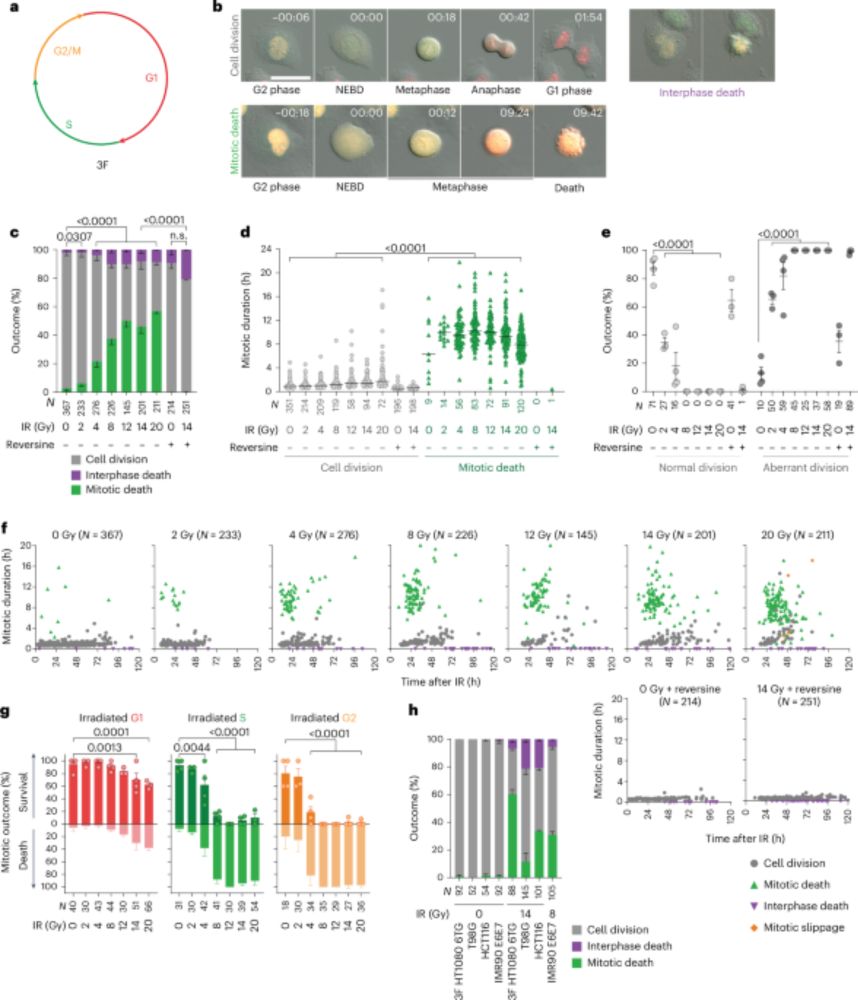
Homologous recombination promotes non-immunogenic mitotic cell death upon DNA damage - Nature Cell Biology
Szmyd et al. show that DNA repair pathways impact whether cells with DNA lesions arrest in mitosis. The formation of homologous recombination-driven double Holliday junctions elicits mitotic cell deat...
www.nature.com
January 13, 2025 at 10:12 AM
1/Delighted to announce the newest paper from our lab, “Homologous recombination promotes non-immunogenic mitotic cell death upon DNA damage”, is out today in @naturecellbiology.bsky.social, www.nature.com/articles/s41....
With our lab’s inaugural Blue Sky post we celebrate our latest publication, a review in Nature Reviews Molecular Cell Biology (@natrevmcb.bsky.social) 🥳
Here, we review our current understanding of telomere biology, discussing differences between human and mouse.
www.nature.com/articles/s41...
Here, we review our current understanding of telomere biology, discussing differences between human and mouse.
www.nature.com/articles/s41...
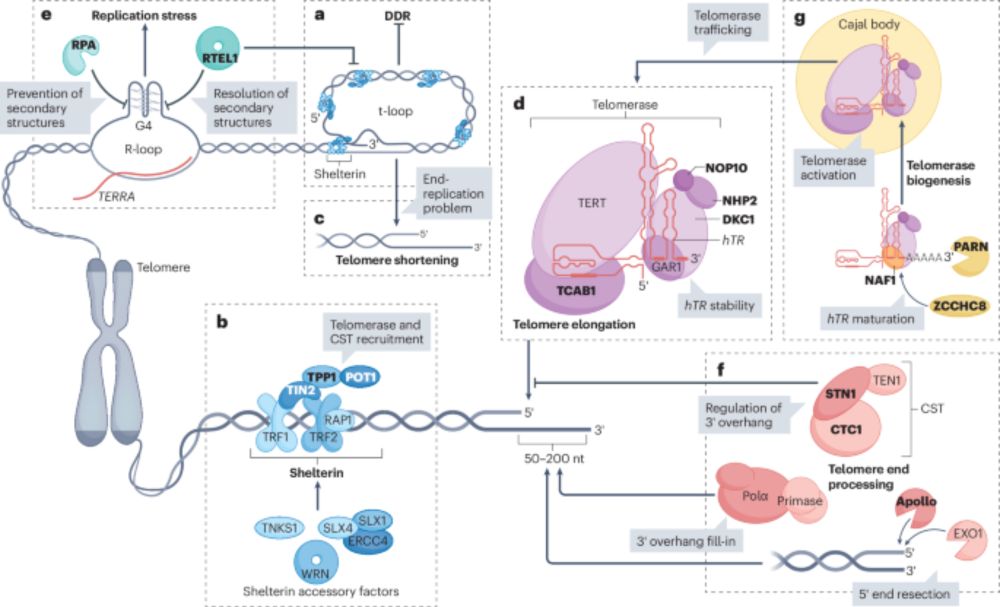
Telomere function and regulation from mouse models to human ageing and disease - Nature Reviews Molecular Cell Biology
Telomere dysfunction, usually owing to shortening, activates cellular senescence and can contribute to age-associated diseases and cancer. Mouse models are crucial for telomere research, but human and...
www.nature.com
December 17, 2024 at 10:15 PM
With our lab’s inaugural Blue Sky post we celebrate our latest publication, a review in Nature Reviews Molecular Cell Biology (@natrevmcb.bsky.social) 🥳
Here, we review our current understanding of telomere biology, discussing differences between human and mouse.
www.nature.com/articles/s41...
Here, we review our current understanding of telomere biology, discussing differences between human and mouse.
www.nature.com/articles/s41...

